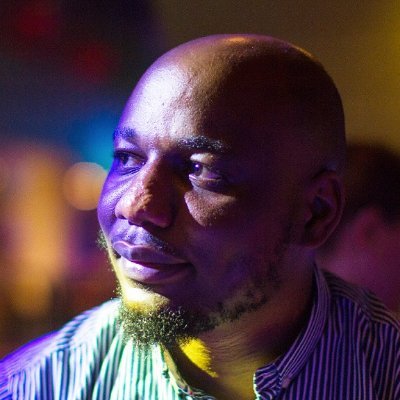By WOLE TALABI
I’ve read a lot of science fiction. Award-winning epics, sweeping space operas, philosophical considerations of the human condition, wonderful alternate histories, spectacular visions of the future, so many stories that took me to the edge of space, time and imagination, but in most of them, there was hardly a mention of Africa or Africans or even specific African ways of thinking. And when I say ‘African’, I mean African, not African-American or the larger African diaspora. Not that I want to draw lines and make distinctions, I’d prefer not to, but the lines exist and thus must be acknowledged. In fact, they already have. This brings us to Afrofuturism.

Mark Dery in Black to the Future: Interviews with Samuel R Delany, Greg Tate and Tricia Rose wrote, “Speculative Fiction that addresses African–American themes and addresses African–American concerns in the context of twentieth-century technoculture—and, more generally, African–American signification that appropriates images of technology and a prosthetically enhanced future—might, for want of a better term, be called ‘Afrofuturism’.
There are issues with this term and while I will not dwell on them here, as they have already been extensively explored by academics, critics, readers and authors, I believe the lens through which the term was first conceived are obvious. This is evidenced by the fact that since its introduction into the general literary language in 1993, the meanings of Afrofuturism have been revised, reviewed, reconsidered, leading to iterations such as Afrofuturism 2.0 and Afrofuturism 3.0.
But few people are as aware of the power of words as authors.
In 2018, Mohale Mashigo’s essay Afrofuturism: Ayashis’ Amateki which serves as the preface to her collection of short stories, Intruders, stated: “I believe Africans, living in Africa, need something entirely different from Afrofuturism. I’m not going to coin a phrase but please feel free to do so.”
In many African musical traditions, where there is a call, there is a response and I like to imagine that there was some larger music at play here because in 2019, Nnedi Okorafor published a statement on her blog called Africanfuturism Defined (reprinted in this anthology) in which she writes, “Africanfuturism is similar to ‘Afrofuturism’ in the way that blacks on the continent and in the Black Diaspora are all connected by blood, spirit, history and future. The difference is that Africanfuturism is specifically and more directly rooted in African culture, history, mythology and point-of-view as it then branches into the Black Diaspora, and it does not privilege or center the West. Africanfuturism is concerned with visions of the future, is interested in technology, leaves the earth, skews optimistic, is centered on and predominantly written by people of African descent (black people) and it is rooted first and foremost in Africa.”
This is an interesting working definition with which I believe she was trying to refocus the lens through which her work (and the work of several other African authors) was being seen. And it is working. While Africanfuturism can be seen by some as a subset of certain expanded definitions of Afrofuturism, it is largely its own term. Africanfuturist stories going as far back as the history of the genre can (and should) now be clearly seen and read through a lens that centres them and their viewpoints, encouraging readers around the work to actively engage with African traditions of thought, of science, of philosophy, of history, of dreams, of being. I believe there is value in this focus, in this clarity.
While others in the many black speculative arts have been using similar terms including the distinct “African Futurism” (two words) to say similar things, by staking claim and giving definition to this term, Africanfuturism, there is now an anchor point, a clearer signpost for what many African authors are trying to do when they write certain kinds of science fiction – not just from Africa, or set in Africa, but about Africa.
And so, here is Brittle Paper’s Africanfuturism Anthology, composed of 8 original visions of Africanfuturism: science fiction stories focused on the African experience and hopes and fears, exploring African sciences, philosophies and adaptations to technology and visions of the future centered on, or spiraling out of, Africa. They cover a wide range of science fiction sub-genres, tones and styles, from the mundane to the operatic, but they all, I believe, capture the essence of what we talk about when we talk about Africanfuturism.
I hope you enjoy them.
Wole Talabi is a full-time engineer, part-time writer and some-time editor from Nigeria.
Source: Brittlepaper

